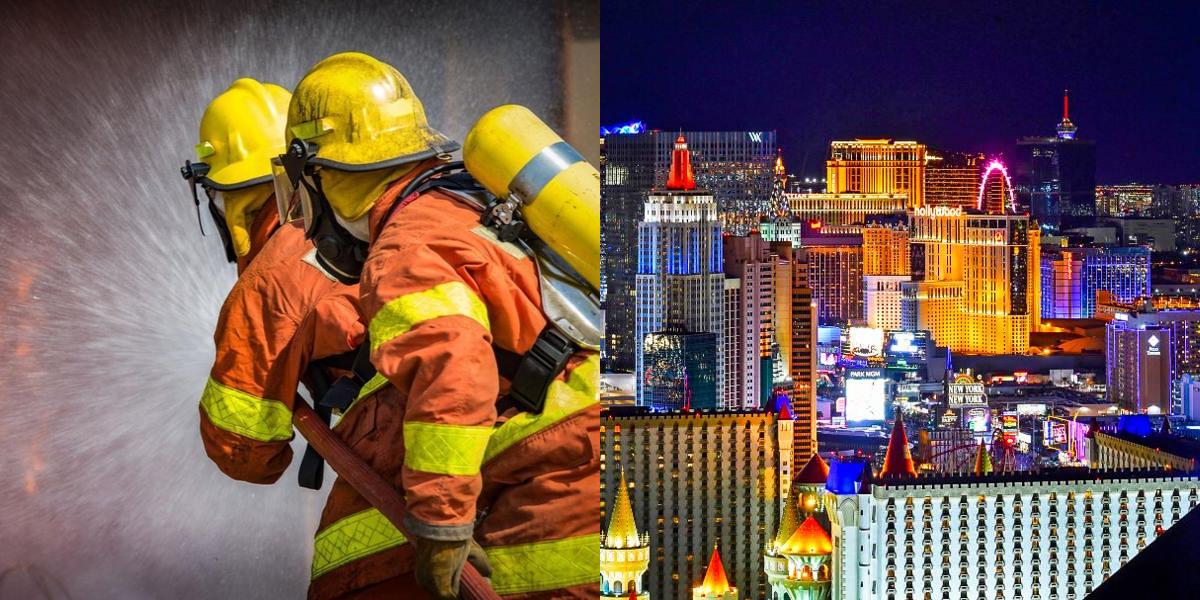How to Become a Firefighter in Nevada (2025)

Firefighters in Nevada earn a median salary of $67,120 annually while serving as the frontline heroes who protect lives and property during emergencies—and with the state's growing population and wildfire risks, demand for qualified firefighters continues to rise. According to the U.S. Bureau of Labor Statistics, Nevada employs over 2,500 firefighters and paramedics, with entry-level positions starting around $45,000 and experienced professionals earning upward of $85,000 annually.
Step 5: Advance Your Career
Within your first year, pursue additional certifications to increase value and earning potential. Wildland Firefighter certification is essential in Nevada due to frequent wildfire threats—training takes 40 hours and opens opportunities with federal agencies. Paramedic training requires 1,200-1,800 hours but increases salary by $10,000-15,000 annually. Technical rescue certifications (rope rescue, confined space, water rescue) make you eligible for specialized teams. Many departments offer tuition reimbursement up to $5,000 annually for fire science degrees.
Finding Firefighter Classes in Nevada
Dreambound simplifies the search for firefighter training programs, offering a comprehensive directory of accredited options. Visit Dreambound to explore courses, compare programs, and choose the right path for your career goals.
Career Paths and Opportunities after Becoming a Firefighter
- Entry-Level (0-2 years): Probationary firefighters start at $45,000-$50,000, focusing on mastering basic skills, equipment operation, and department protocols while completing additional required training.
- Mid-Career (3-7 years): Experienced firefighters earning $55,000-$70,000 often specialize in technical rescue, HAZMAT response, or fire investigation. Many pursue paramedic certification or compete for engineer positions operating apparatus.
- Advanced Opportunities (8+ years): Senior firefighters advance to company officer roles (Captain: $75,000-$85,000), battalion chief positions ($90,000-$110,000), or specialized roles like fire marshal or training officer.
- Specialized Paths: Nevada's unique opportunities include wildland firefighting with federal agencies ($50,000-$65,000), airport firefighting at McCarran International ($60,000-$75,000), and industrial firefighting at mining operations ($70,000-$85,000).
- Post-Retirement Options: After 20-25 years, many firefighters transition to fire inspection ($55,000+), emergency management ($65,000+), or fire service instruction at academies ($60,000+).
Frequently Asked Questions
How competitive is getting hired as a firefighter in Nevada?
Major departments like Las Vegas Fire & Rescue receive 1,000+ applications for 30-50 positions, making the process highly competitive; however, smaller departments and rural areas often struggle to fill positions, offering better odds for entry-level candidates.
Do Nevada firefighters need to be paramedics?
While EMT-Basic certification is required for all Nevada firefighters, paramedic certification isn't mandatory at hire for most departments, though many require or strongly encourage obtaining it within 2-3 years of employment.
What's the age limit for becoming a firefighter in Nevada?
Nevada has no maximum age limit for firefighters as long as candidates can pass all physical and medical requirements; however, some departments have mandatory retirement ages (typically 60-65) that may affect pension calculations for older recruits.
Final Thoughts
Becoming a firefighter is an honorable and rewarding career choice. By obtaining the necessary certification and following the steps to secure a job, you can embark on a fulfilling journey of serving and protecting your community. The field of firefighting offers various opportunities for specialization, advancement, and personal growth. Whether you choose to stay in the front lines or pursue leadership roles, there are numerous career paths to explore. So, if you have a passion for helping others and a desire to make a difference, consider a career as a firefighter.
Considering a change in your career? We've gathered some perspectives to help you in your journey. You can explore several of these:

Jessa Guzon is a member of the School Growth and Customer Success Team in Dreambound. She finds joy in assisting both schools and students in reaching their goals by answering their queries and connecting them with the right people. Outside her professional role, Jessa is a happy-go-lucky person with a thirst for adventure.




